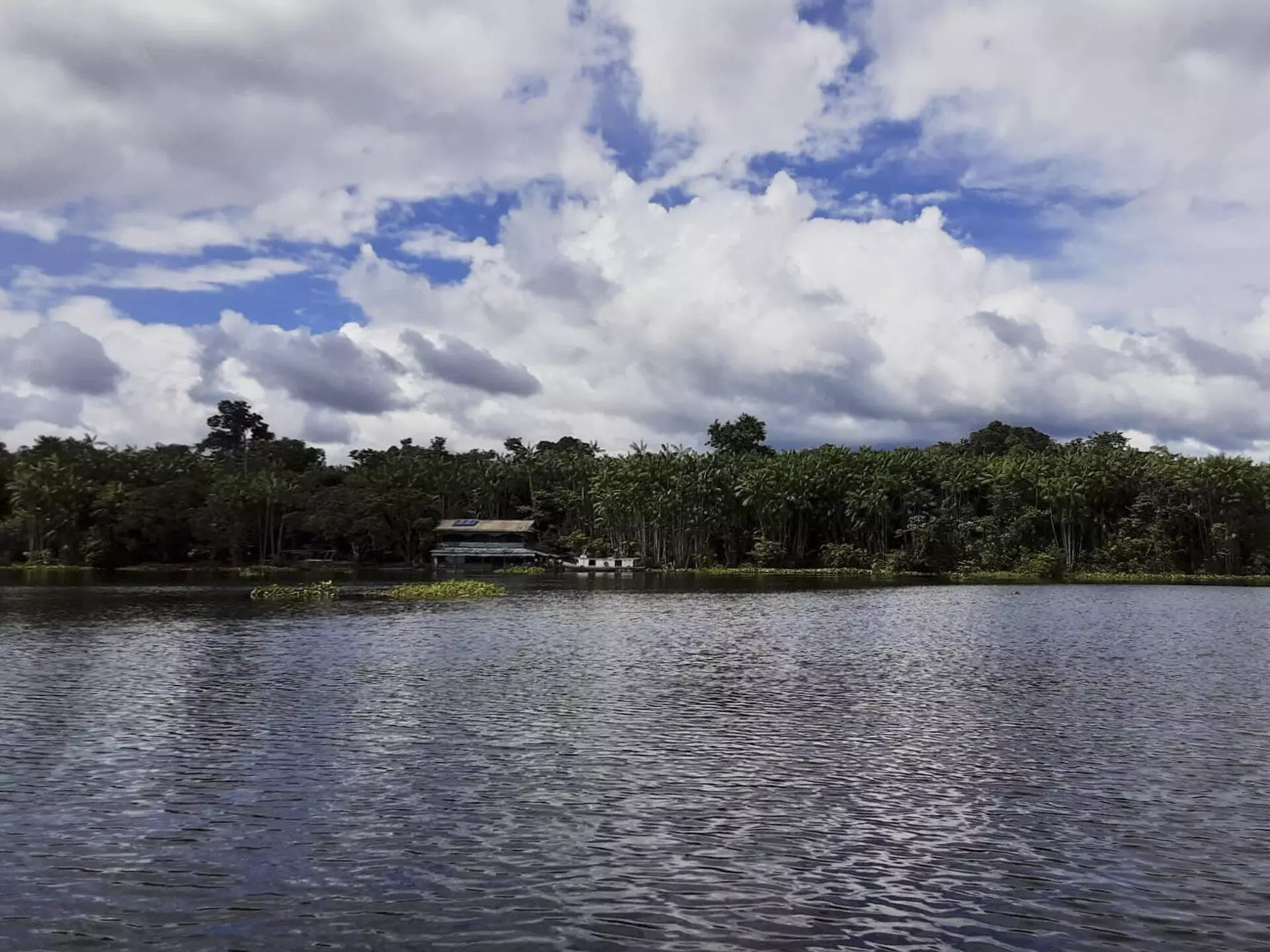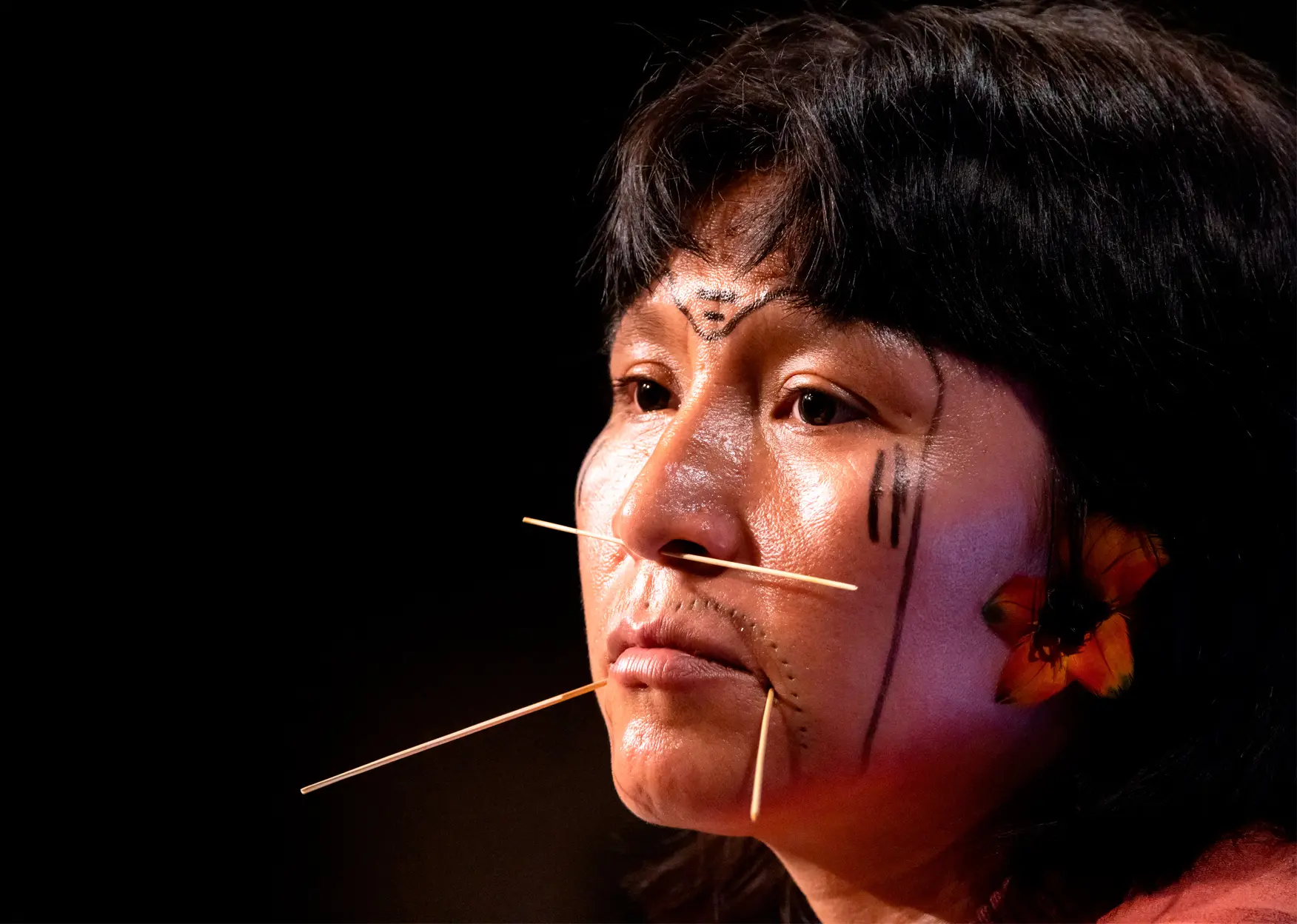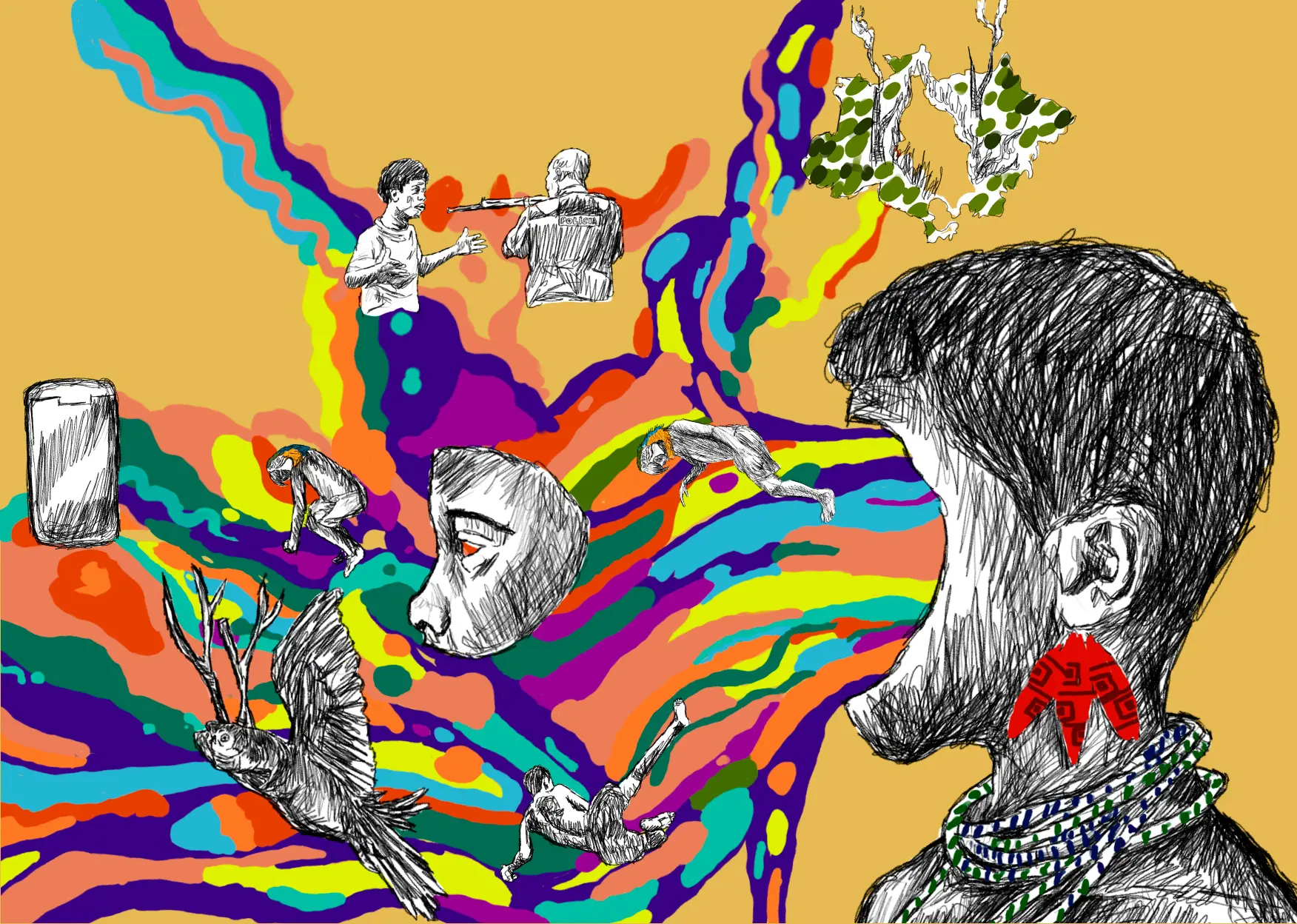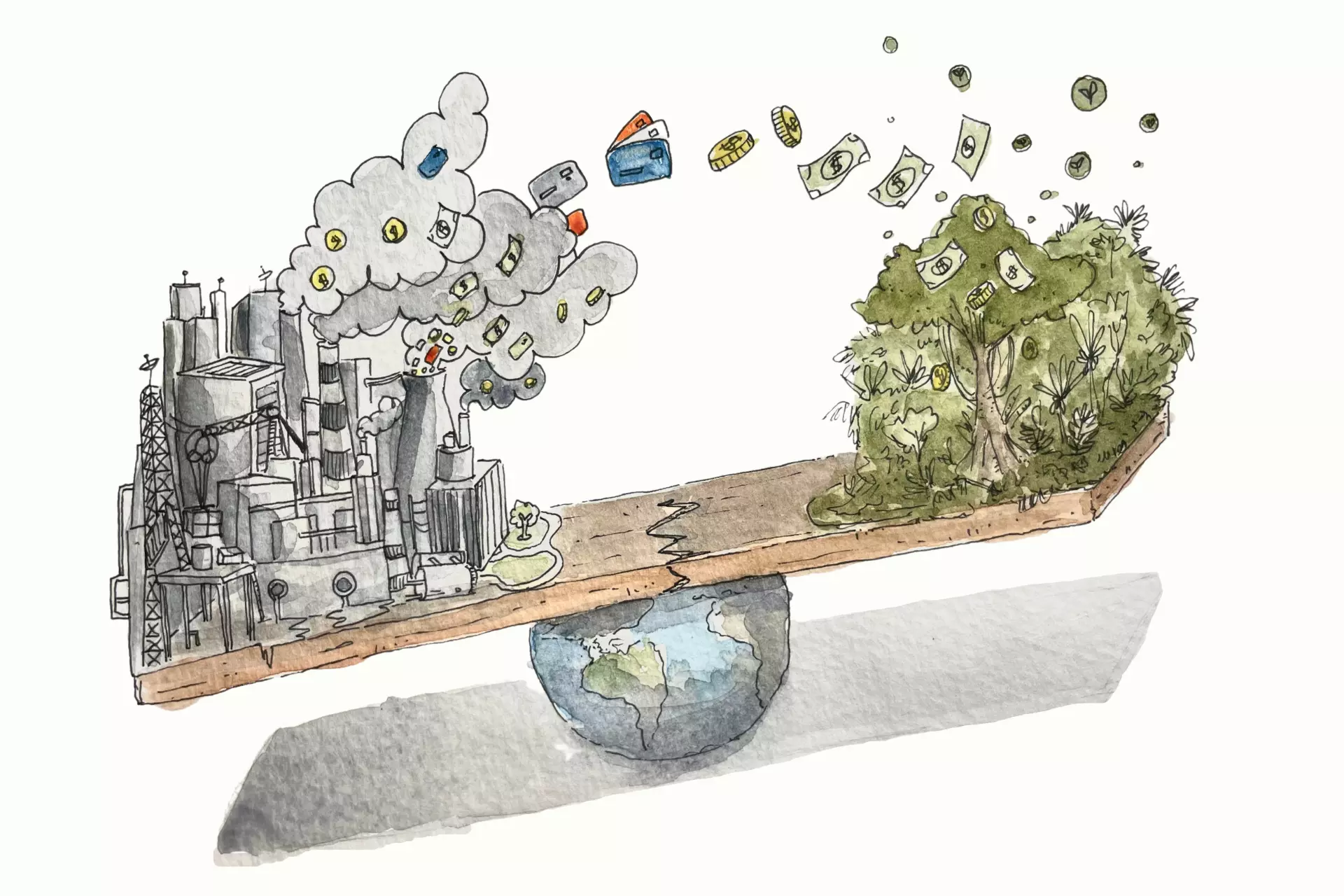The Office of the Public Defender of Pará has filed a public-interest civil action against three companies, one private organization, and the municipal government of Portel, in the state’s northeast, who are accused of generating carbon credits in an area partially overlapping five state agroextractive settlements where 1,484 families live. The action, filed on July 19 with the Agrarian Court of Castanhal, claims that the project was neither authorized by the state government nor submitted to community consultations and this constitutes a “theft of public lands.” The filing demands the project be canceled, its representatives be prohibited from entering affected territories, and for those involved to be penalized with payment of a BRL 5 million indemnity for “collective nonpecuniary damages.” This money would be used by programs benefiting the traditional communities in the State Agroextractive Settlements of Portel Projects.
Public Agrarian Defender Andreia Macedo Barreto signed off on the action and now asks the court to void an “illegal and unconstitutional” decree executed by Portel’s mayor, Vicente de Paulo Ferreira de Oliveira, that authorizes the carbon project and legally classifies it as a public utility, while also stipulating compensation for the city, in the form of schools and healthcare units. This decree is, in turn, based on a municipal law passed in 2022 giving city hall the power to authorize carbon projects in public areas, including areas belonging to the state – a law that is unconstitutional in the opinion of the Office of the Public Defender. The filing says “the municipality and its agents” acted “as partners” in the project. It also alleges claims by the companies that two public primary schools were “supposedly built,” but that they “are outside of the boundaries of the agroextractive settlements.”
Speaking by phone with SUMAÚMA, Mayor Ferreira de Oliveira, a member of the Brazilian Democratic Movement party, denied any wrongdoing, contending there is no federal law on this matter in Brazil and claiming the goal was to indicate the companies involved in the carbon project were providing “social compensation.” He asked our reporters to contact the municipal prosecutor, Adilson Tenório, who told us he would only comment on the matter after he is officially notified of the public-interest civil action and has performed a “legal assessment.”

Mayor Ferreira de Oliveira, a member of the Brazilian Democratic Movement party, denied any wrongdoing. Photo: reproduction/Facebook
This is the first lawsuit to reach the courts following a study by the World Rainforest Movement NGO that pointed to irregularities in four carbon credit projects in Portel. The study was released in late 2022 by the Intercept Brazil news agency. In late January of this year, after a public hearing on the case held in Portel by the Public Prosecutor’s Office of Pará, the state’s Environment and Sustainability Department canceled 219 registrations in Brazil’s national environmental registry of rural properties, also known as CAR, in addition to suspending another 735 registrations connected to carbon contracts in the city.
As reported by SUMAÚMA, companies are rushing to the Amazon to sign contracts to generate carbon credits. This dispute is leading to reports of misappropriated public lands and harassment of Indigenous peoples and traditional communities who are living in the territories that have some of the largest conserved areas of Amazon Rainforest. Credits, which are generated from projects that promise to preserve the forest, are sold on what is known as the voluntary market – an international market free of government regulation – to companies that want to offset their greenhouse gas emissions.
The public-interest civil action filed in Castanhal regards a project under the name of Ribeirinho Redd+ that lays claim to an area spanning 199,962 hectares. Redd is an acronym for Reducing Emissions from Deforestation and Forest Degradation, an instrument created by the United Nations that opened up the possibility of compensation for maintaining forests or for reforestation in so-called “developing countries,” like Brazil. On the voluntary carbon market, credits generated by REDD projects are usually certified by Verra, a company headquartered in the United States. Ribeirinho Redd+ filed a request for Verra registration in 2021, under number 2620, but it has yet to be certified. This means that it is unable to sell carbon credits on the market.
Information posted to its project summary page on the Verra website shows that the proponents of Ribeirinho Redd+ claim to have paid for 1,252 families from traditional communities to obtain certificates of ownership of the project area. This is a reference to CAR registration, which is a self-declared electronic registration that is mandatory for all rural properties and must be validated by the authorities. However, in agroextractive settlements like the ones in Portel, these CAR registrations are collective, not individual. According to the public defender, Andreia Barreto, Riberinho REDD+ was based on 191 illegal CAR registrations; of these, 190 have already been canceled and one is suspended.
The suit claims that the irregular CAR registrations were made under the corporate taxpayer ID number of Associação dos Ribeirinhos and Moradores – a private organization that, despite its name (literally translating to Association of Ribeirinhos and Residents) and according to the public-interest civil action, does not represent the communities in the five agroextractive settlements affected: Deus é Fiel, Joana Peres II – Dorothy Stang, Joana Peres II – Rio Pacajá, Rio Piarim, and Jacaré Puru. The lawsuit lists Associação de Ribeirinhos e Moradores and the Rural Producers Syndicate of Portel as the carbon project’s proponents, while two companies, Amigos dos Ribeirinhos Assessoria Ambiental Eireli and Brazil Agfor, are identified as the project’s implementers. American businessman Michael Greene is a partner and administrator in both Eireli and Brazil Agfor LLC.

Agroextractive settlement on the banks of the Piarim River, in Pará. Photo: Public Defender’s Office of Pará
Public Defender Andreia Barreto said that during proceedings to investigate the events resulting in the public-interest civil action, Greene’s representatives asserted that he has no involvement with Ribeirinho Redd+, since he is not listed as a proponent on the request to register the project with Verra. “But we found that he is a participant, whether as an individual or as a corporate entity,” she said. Eireli is also mentioned in the decree signed by Portel’s mayor to make the project a public utility, along with Associação dos Ribeirinhos e Moradores.
SUMAÚMA attempted to contact Associação dos Ribeirinhos e Moradores and the Rural Producers Syndicate of Portel by phone, both located in the city of Portel, Pará, but was unable to reach anyone. Messages were also sent by e-mail and telephone to Brazil Agfor, but there was no confirmation that they were received.
According to the suit, although the Ribeirinho Redd+ project has been under investigation since 2022, representatives from the companies and from entities involved continue to enter the state settlements to do “forest inventory, monitoring, and registrations.” The document also states that communities were subjected to “forced eviction” and “the ownership and agrarian activity exercised by beneficiary families in settlements is threatened.”
Public Defender Andreia Barreto is also conducting ongoing proceedings on the proponents of three other projects in Portel that are mentioned in the World Rainforest Movement study. They are: RMDLT Portel Pará Redd, Redd+ Pacajaí, and Redd Rio Anapu-Pacajá. Unlike Ribeirinho Redd+, these three have already received Verra registration. A report written by Pará’s Office of the Public Defender identified thirty-eight companies that have registered property in these three project areas; of these, thirteen list Michael Greene “as managing partner or legal representative of the corporate entity partners.” Out of these thirty-eight companies, fourteen are listed as “not in good standing due to missing statements” or “suspended for inconsistent registration” by Brazil’s federal revenue service. Of the more than forty property deeds registered by these companies, around twenty have already been canceled with notary publics in Portel and neighboring Breves, according to Pará’s Office of the Public Defender.
Spell check (Portuguese): Elvira Gago
Translation into Spanish: Meritxell Almarza
English translation: Sarah J. Johnson
Photography editing: Marcelo Aguilar, Mariana Greif and Pablo Albarenga
Page setup: Érica Saboya





